A Coalition of Civil Society Organisations Presented its Second Shadow Report with the Support of EU Project Pravo-Justice
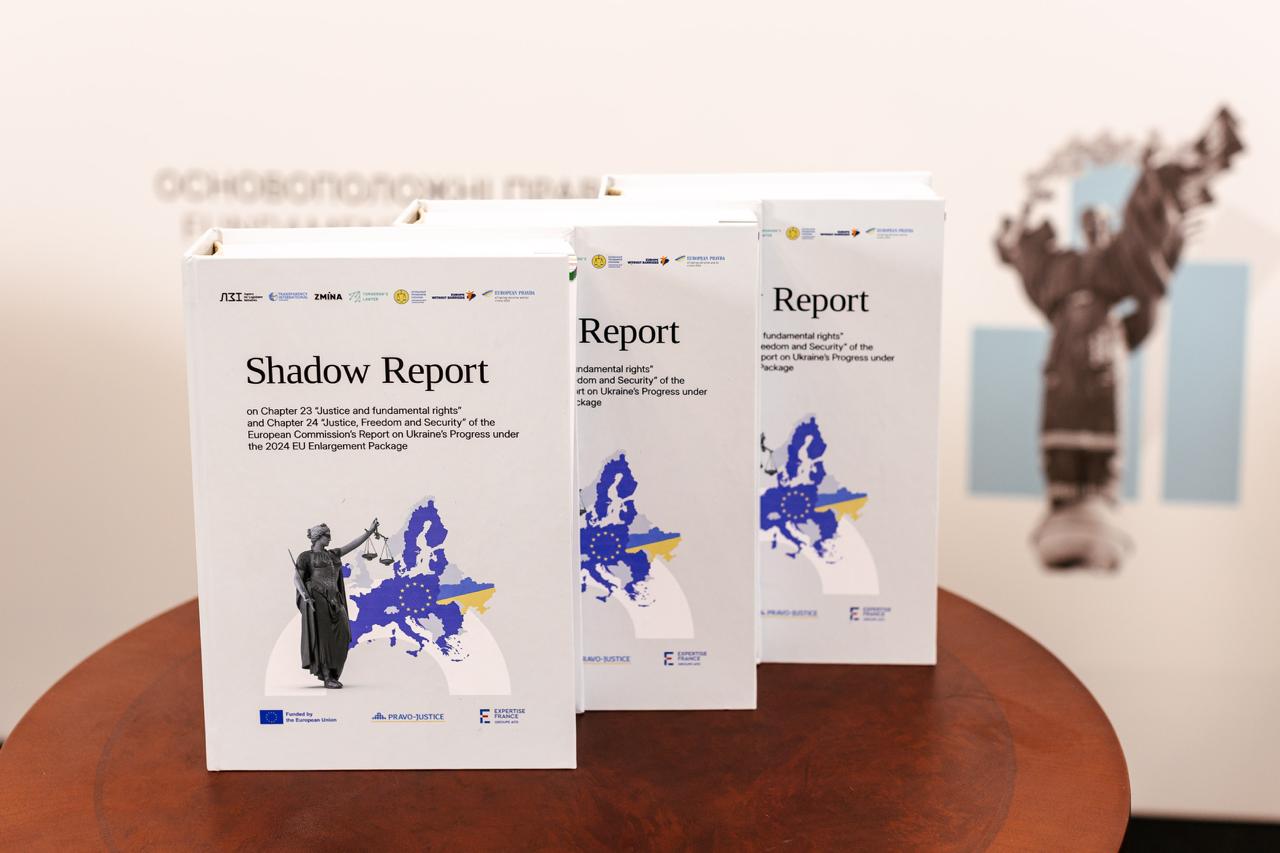
On 23 October, the key findings of the second Shadow Report on Chapters 23 ‘Justice and Fundamental Rights’ and 24 ‘Justice, Freedom and Security’ of the European Commission’s Ukraine 2024 Report were presented in Kyiv. This report was produced by the Agency for Legislative Initiatives together with Transparency International Ukraine and ZMINA Human Rights Centre, Tomorrow’s Lawyer, Europe without Barriers, Ukrainian Bar Association, and European Pravda, with the support of EU Project Pravo-Justice implemented by Expertise France in Ukraine.
At the presentation, representatives of the public authorities, civil society and international partners discussed Ukraine’s progress and the challenges the country is still facing in the areas of the rule of law, countering corruption, organised crime, protection of fundamental human rights and freedoms, visa policy, migration, etc.

Taras Kachka, Deputy Prime Minister for European and Euro-Atlantic Integration of Ukraine, said that despite the war, Ukraine continues to implement reforms and that justice is being served, which is the most important thing.
“The system is becoming more and more resilient, and we are gradually shifting focus from basic issues to specific issues and additional requests. This is reflected in the Shadow Report. It is important that we consider all of its the recommendations and proposals in it in the context of the Roadmaps – to avoid overlapping commitments and to move forward in a consistent and comprehensive manner. The Shadow Report should not be seen as an alternative or an opposing viewpoint, but rather as a complement to the overall system of communication between the government and civil society,” noted Taras Kachka, Deputy Prime Minister for European and Euro-Atlantic Integration of Ukraine.
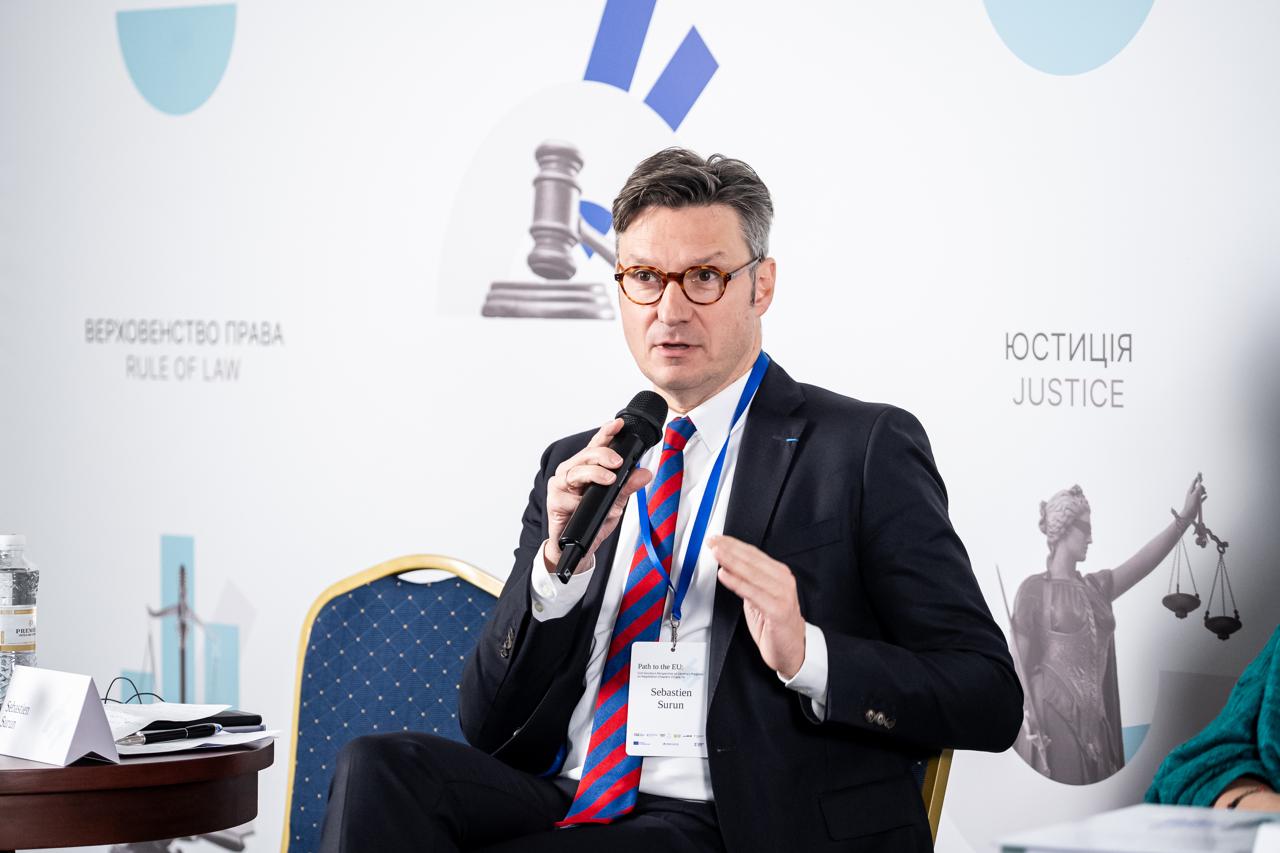
Sébastien Surun, Chargé d’Affaires at the Embassy of France in Ukraine, noted that Shadow Report is an extremely valuable tool for Ukraine’s international partners as well, since it provides a better understanding of how they can be helpful.
“European integration is a marathon, not a sprint. The first steps have already been taken, but it is crucial not to lose momentum, even if the process seems less exciting. It is now time to transition beyond symbolic decisions and take practical steps in terms of procedures, personnel policy and the remuneration system. This daily and consistent work on specific issues helps us approach our shared goal of Ukraine’s full-fledged participation in the European community,” he stated.
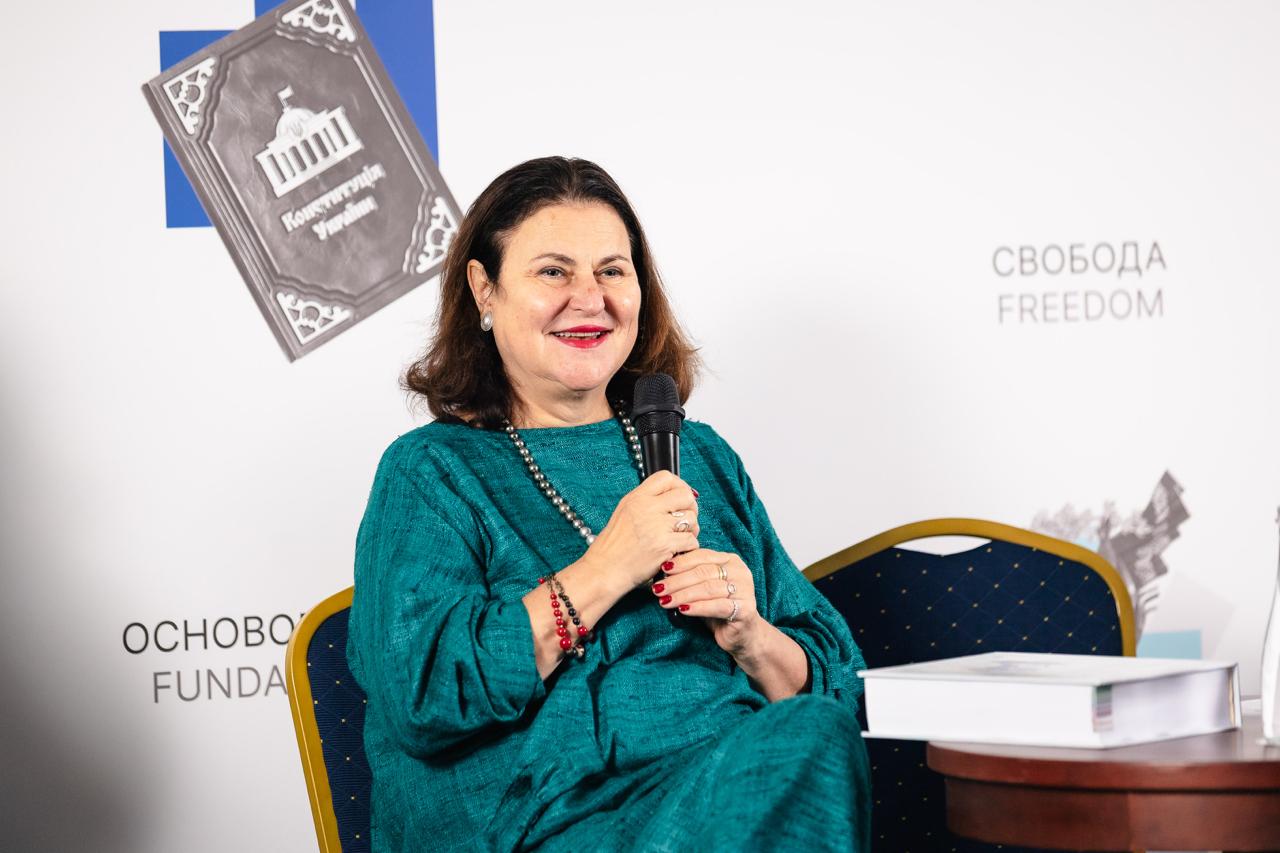
Katarína Mathernová, Ambassador of the EU to Ukraine, stressed that the rule of law must remain a priority for Ukraine, noting that consistent policy, leadership and effectiveness are key to EU membership.
According to the EU Delegation to Ukraine, “the EU welcomes this Shadow Report as an example of constructive cooperation between the authorities and civil society. Public monitoring strengthens accountability and transparency, ensuring that the European integration of Ukraine remains on track.”
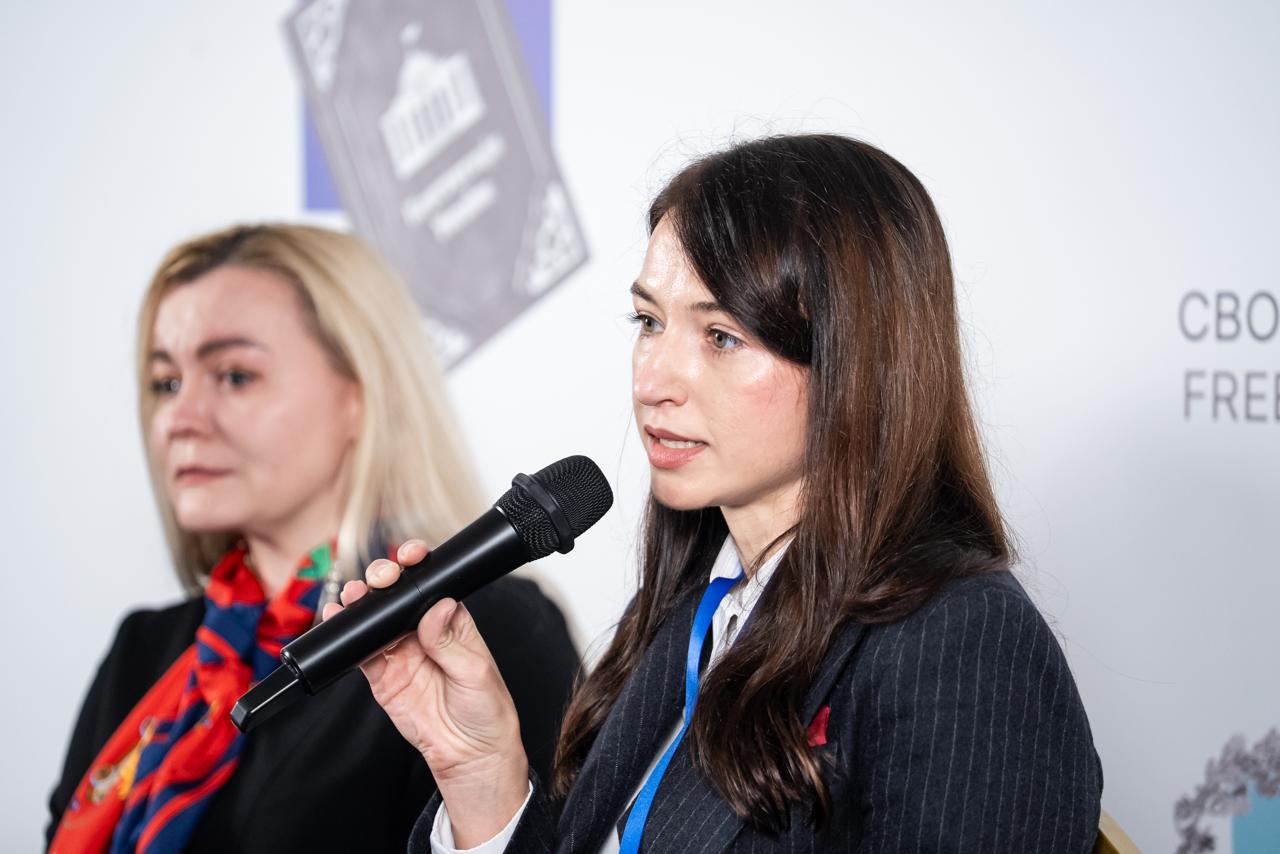
In the opinion of Oksana Tsymbrivska, Team Leader at EU Project Pravo-Justice, the Shadow Report is a tool for dialogue between the authorities, civil society, business and international partners. Its independent findings and recommendations can serve as a basis for practical measures in the area of reforms.
“The Shadow Report not only captures achievements and problems. It also contains specific recommendations. This year, there are over 500 of them. I would like to thank all members of the coalition led by the Agency for Legislative Initiatives, as well as all experts involved, for making this report so thorough. We are convinced that it will be useful for the state in the further implementation of reforms on the path to the EU,” she emphasised, noting that the Project is committed to supporting this independent assessment of reforms by civil society in the future.
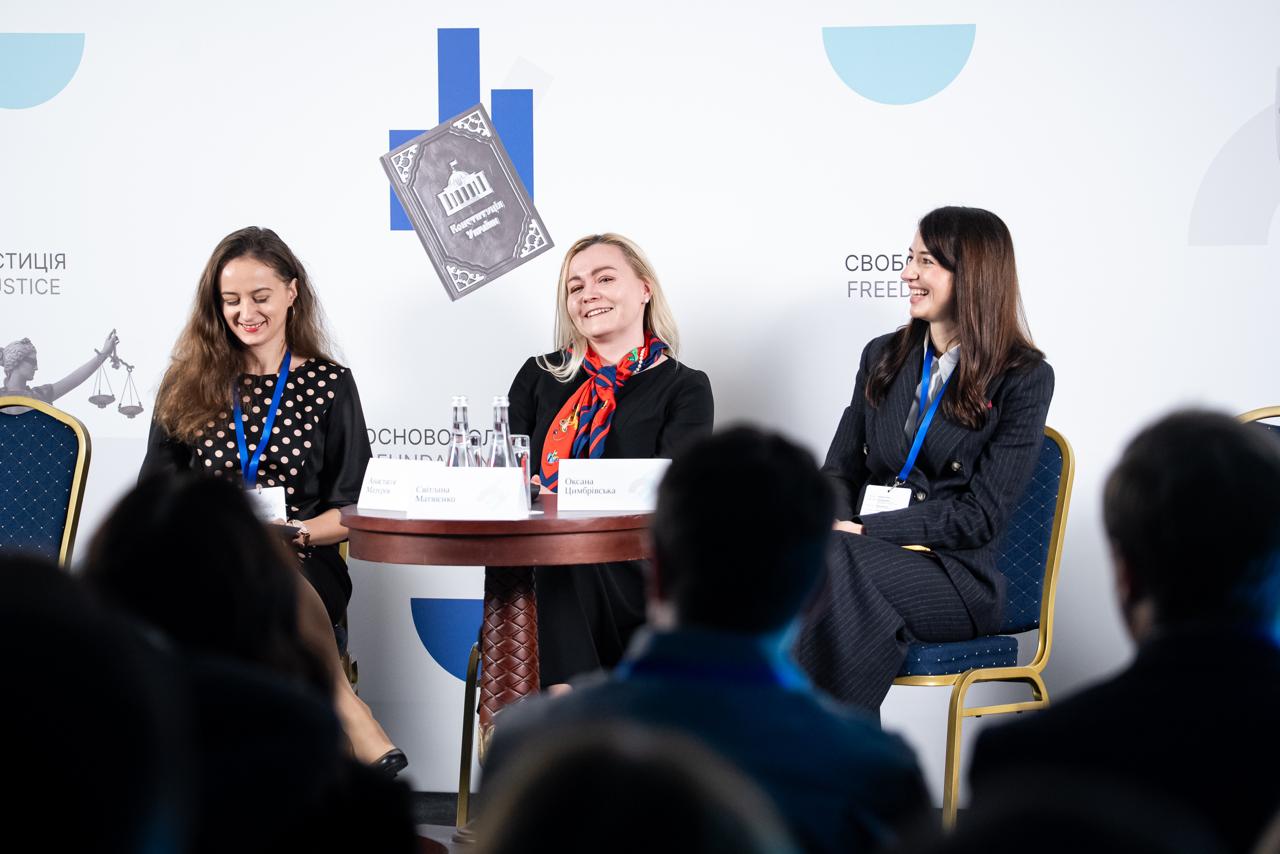
Svitlana Matvienko, Executive Director of the Agency for Legislative Initiatives, stated that on the path to EU membership, it is essential not only to criticise, but also to propose solutions to build capable institutions that meet EU standards.
“The Shadow Report is not an ‘opposing’ document; it is our joint assessment conducted together with public authorities, a kind of mirror of progress in which we see Ukraine’s path to EU membership. On this path, civil society remains a reliable ‘shoulder’ in working on reforms,” emphasised the Executive Director of the Agency for Legislative Initiatives.
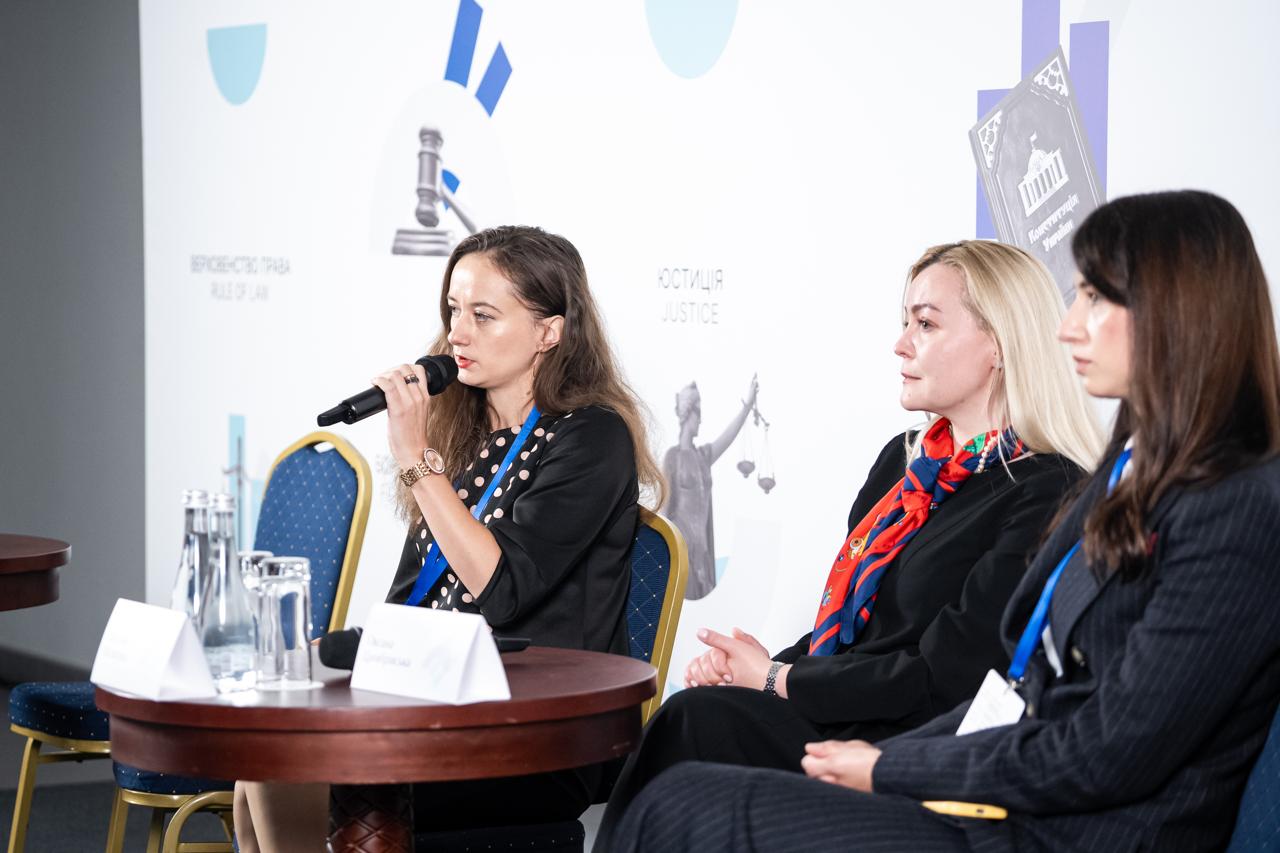
Anastasiia Mazurok, Deputy Executive Director for Operations at Transparency International Ukraine, emphasised that the report is not just a theoretical document. It is a practical roadmap for change, outlining the steps to be taken on our path towards the EU. The report was produced thanks to the synergy between civil society, public authorities and international partners.
“I believe that the work we are presenting today and the thousands of pages of recommendations we have developed are our contribution to ensuring that one day we can all write: Ukraine is a member of the European Union,” she said.
The report includes the following sections:
- Judicial reform, public prosecution reform, combating organised crime (except for certain topics), cooperation in the field of drug control, counter-terrorism, judicial cooperation in criminal, civil and commercial matters (Agency for Legislative Initiatives);
- Fighting corruption and specific aspects of the fight against organised crime (Transparency International Ukraine);
- Protection of fundamental rights and freedoms, specific aspects of combating organised crime and legal and illegal migration, as well as providing asylum to refugees (asylum seekers) (ZMINA Human Rights Centre);
- Bar reform (Tomorrow’s Lawyer);
- Bar reform (Ukrainian Bar Association);
- Visa policy, Schengen and external borders, specific aspects of legal and illegal migration, and euro counterfeiting (Europe without Barriers).
It should be noted that the period examined by experts under Chapter 23 spans September 2024 to August 2025. For Chapter 24, the experts analysed data for previous years and up to August 2025.